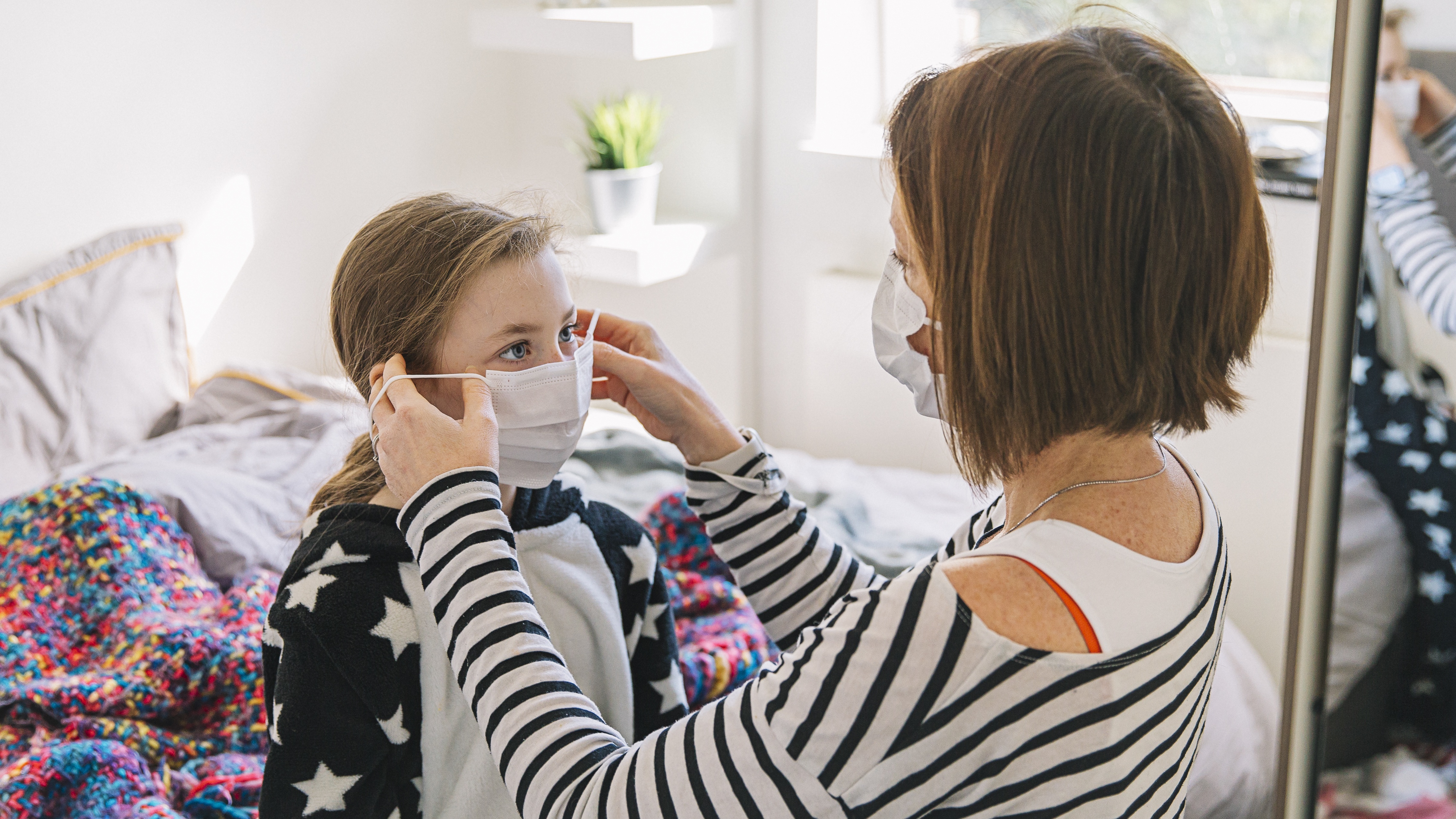Should you wear a face mask to prevent coronavirus? What the experts say now
The CDC is now recommending that people wear face masks. Here's why.

Should you wear a face mask? The answer to that question has evolved as the coronavirus pandemic continues an uphill spread across the US. The Center for Disease Control issued new guidance on April 3 recommending Americans in COVID-19 hot spots to cover their faces in an effort to slow the spread of the virus.
When the coronavirus outbreak began overseas, the CDC did not initially recommend the use of face masks among non-health workers. But as conditions worsen, infecting 245,000 people in the US and counting, more are wondering where to buy face masks, or even how to make a face mask at home.
- Where to buy face masks: These retailers have stock
- Do you know how to make hand sanitizer?
- Free HBO shows and movies you can watch now: Sopranos, Veep and more
In response, Vice President Mike Pence said at a press briefing on April 2 that revised guidance based on "consultation and advice from the CDC and top health experts," is expected "in the days ahead." The changed counsel will be supported by the White House, but not made mandatory.
The mayors of Los Angeles and New York, sites of major outbreaks, have already urged their constituents to consider wearing face masks when outside of their homes. Governor Andrew Cuomo also told CNN’s Anderson Cooper that “it couldn’t hurt from a public-health point of view.”
Early data suggests many who are infected are not symptomatic, which is why we are recommending you use cloth face coverings plus physical distancing for essential activities.Do not use surgical and N95 masks, which are reserved for first responders and medical workers.April 2, 2020
Because of widespread PPE shortages, the advice for the public will apply to non-medical face masks. Surgical-grade coverings, or N95 masks, are to be used only by healthcare workers and first responders on the front lines of the coronavirus battle.
If you bought N95 masks when they were still available earlier this year, consider donating them to a hospital or healthcare center in one of the hard-hit outbreak centers in the country. While they’re not the most protective against the coronavirus, cloth coverings are recommended for people who aren’t in direct contact with illness.
Face mask studies: What experts say
Although mask-wearing is more common in other parts of the world, it’s not caught on in the US. That could be in part to the mixed messages about their effectiveness, but it seems there’s been a communication shift in recent days.
Get instant access to breaking news, the hottest reviews, great deals and helpful tips.
Studies have shown that mask-wearing, when paired with frequent hand-washing and stringent social-distancing, could limit the spread of airborne virus particles. And according to researchers from Cambridge University, vacuum cleaner bags (or HEPA bags), dish towels and cotton fabric are at least 70% effective against virus particles smaller than the coronavirus.
Those odds highlight that wearing a face mask is better than nothing, but is not the only measure people should take during this time. Should you wear a face mask, don’t think it means you can relax on physical distancing guidelines.
In a study taken among 1,437 college students in Michigan, neither face masks nor hand sanitizer alone affected the rates of contracting influenza-like or coronavirus-like illness. together, however, they reduced the rate of infection from 35% to 51%.
And in a more optimistic study of 143 households in Sydney, Australians who donned surgical masks every day as instructed reduced their risk of respiratory illness by an estimated 60% to 80%. That said, there’s several studies with inconclusive evidence that wearing a face mask offers conclusive benefit.
If you're using a face mask, making sure you know how to clean a face mask to protect yourself from coronavirus.
Brush up on our coronavirus tips for staying safe before leaving your home for essential errands. And see where coronavirus drive-through testing is offered near you in case you start showing symptoms of illness.

Kate Kozuch is the managing editor of social and video at Tom’s Guide. She writes about smartwatches, TVs, audio devices, and some cooking appliances, too. Kate appears on Fox News to talk tech trends and runs the Tom's Guide TikTok account, which you should be following if you don't already. When she’s not filming tech videos, you can find her taking up a new sport, mastering the NYT Crossword or channeling her inner celebrity chef.
 Club Benefits
Club Benefits





